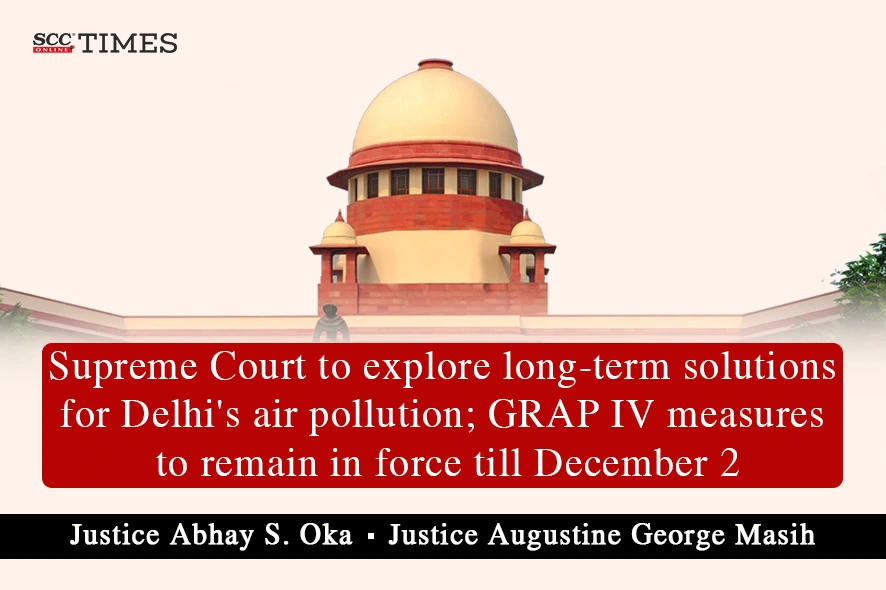Supreme Court: In a matter concerning Delhi air pollution, the Division Bench of Abhay S. Oka and Augustine George Masih, JJ. ordered that Stage IV of the Graded Response Action Plan (‘GRAP’), which was implemented to address the severe air quality situation in the city, would remain in operation until at least 02-12-2024.
The Court added that in the meantime, Commission for Air Quality Management (‘CAQM’) will hold a meeting to decide on easing the GRAP restrictions.
The bench emphasized the continuation of the stringent measures to combat the severe air quality in Delhi, which includes restrictions on industries, construction activities, and a ban on certain types of vehicular emissions, except for schools to be continued till 02-12-2024.
The Court also remarked that there had been a complete failure in stopping the entry of trucks into Delhi despite the restrictions in place under Stage IV of GRAP. Further, the Bench noted that the police had not enforced the entry ban, allowing trucks to enter Delhi, with no mechanism in place to turn them back once inside the city.
The Bench also made it clear that it would continue to hear the matter related to air pollution in detail, with the objective of finding a long-term solution to the crisis. The Court emphasized that it would examine key issues contributing to the pollution, including stubble burning, the entry of trucks into the National Capital Region (NCR), and the firecracker ban.
The Bench remarked, “we must have machinery in place which can send us 24×7 data of stubble burning. That is the root problem, you see, and that is why this problem is arising.”
The Court expressed concern over the slow action taken by the States against farmers engaged in stubble burning, which is one of the major contributors to the recurring air pollution crisis.
The Bench questioned a notification that allows certain activities, which are permissible under GRAP III, even while GRAP IV continues to remain in operation.
Meanwhile, the Court also took note of a news report alleging that stubble burning was allowed by officials in Punjab after 4 PM and directed the authorities to take immediate action if the media report was found to be accurate.
Source: Press







